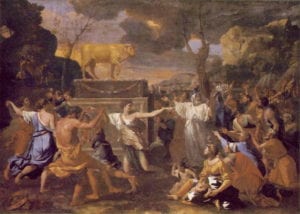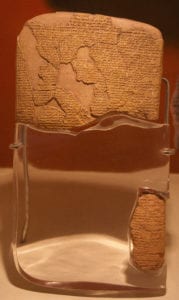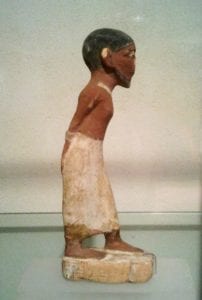
An Old Testament KnoWhy relating to the reading assignment for Gospel Doctrine Lesson 14: “Ye Shall Be a Peculiar Treasure Unto Me” (Exodus 15-20; 32-34) (JBOTL14B)
Question:The making of the golden calf is often presented as the height of Israel’s rejection of God and His law. But it was only one of several incidents of rebellion that occurred in the wilderness. Among all these provocations, which ones were the most serious?
Summary: The translations, revelations, and teachings of the Prophet Joseph Smith make it clear that the most serious provocations of Israel had nothing to do with their frequent complainings in the wilderness, as one might otherwise imagine. Rather, they had to do with Israel’s deliberate rejection of “the last law from Moses,” a law associated with the fulness of the priesthood and its blessings. In their rejection of that law, Israel had refused “to sanctify [themselves] that they might behold the face of God” at Sinai. Instead, they prayed “that God would speak to Moses and not to them.” “In consequence of [their actions, God] cursed them with a carnal law.” And, as a result of their actions, the generation of Israelites who left Egypt in the Exodus would neither enter into the promised land nor into “the rest of the Lord” during their mortal lives. Happily, the Lord holds out the possibility of receiving these sometimes-rejected blessings to faithful disciples in our day who are willing to make and keep the covenants that will enable them to continually enjoy the divine presence. Through “sufficient hope,” the “peaceable followers of Christ” may “enter into the rest of the Lord” in this life, “until [they] shall rest with him in heaven.” This rest “is the fulness of his glory.”
The full article may be found at the Interpreter Foundation website: KnoWhy OTL14B — What Were Israel’s Most Serious Provocations of the Lord in the Wilderness?



